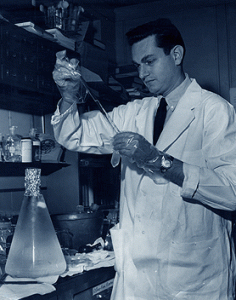 As a lifelong team participant and now devotee of leveraging the power of teams, I was fascinated and excited to see the article, “The New Science of Building Great Teams,” in the April, 2012 issue of Harvard Business Review. (Subscription required for the full article…or check out the related HBR Blog Content for free.)
As a lifelong team participant and now devotee of leveraging the power of teams, I was fascinated and excited to see the article, “The New Science of Building Great Teams,” in the April, 2012 issue of Harvard Business Review. (Subscription required for the full article…or check out the related HBR Blog Content for free.)
I suspect we are all for adding some science to the sticky, squishy and often problematic issue of how to get people to not only play nice together in the sandbox, but how to do so at a sustained high-level of performance.
While not to trivialize the findings of this extensive, sensor based, sociometric study, the authors engage in what seems to be a a great deal of razzle dazzle to conclude that levels of energy, engagement and exploration are the keys to assessing whether a team will perform at a high level or not. Raise your hand if you didn’t know that…and then excuse yourself from class.
Perhaps their most telling statement is: “A skeptic would argue that the points about energy, engagement and exploration are blindingly obvious.” OK, I admit to feeling like I needed sunglasses at that less than startling conclusion.
In fairness, the authors continue beyond blindingly obvious with: “But the data from our research improve on conventional wisdom. They add an unprecedented level of precision to our observations, quantify the key dynamics and make them measurable to an extraordinary degree.”
OK. Again, I suspect we all can use some science and more precision in our work herding cats in pursuit of high performance.
A few additional points to ponder from the article:
- 35% of the variation in a team’s performance can be accounted for by the number of face-to-face exchanges among team members.
- In a typical high performance team, members are listening or speaking to the whole group only about half the time…the other half being one-on-one conversations.
- Social time is critical to team performance… “often accounting for more than 50% of positive changes in communication patterns.”
In an important statement (which admittedly gives me cause to pause), the authors offer: “Without the data there’s simply no way to understand which dynamics drive successful teams.”
Excitement but Healthy Cynicism:
Who among us doesn’t want some help in building high performance teams? This study is fascinating for its potential, yet a bit frustrating in the “blindingly obvious” outcomes. The key it seems (and as the authors suggest) is to look deeper into the study outcomes for the insights that will lead to new approaches to building and managing. I’m interested and I suspect every student and practitioner of management is interested as well.
A quarter century of living on and with teams tells me that the dynamics change for every situation. I’m a bit uncomfortable imposing data and potentially inferring causation from correlation on something as complex as human interaction in varied situations. It might be easier to predict the weather accurately and consistently. Nonetheless, I’m hopeful we’ll gain some insights that can be applied in the workplace from projects like this one.
The Bottom-Line for Now:
I’m cheering for the authors of this type of research so don’t misconstrue my intent in the post. You’re getting my blink reaction. I need to read this article a few times to gain more insight beyond the “blindingly obvious” indication that the level (and quality) of energy, engagement and exploration relate to a team’s success. In particular, we all need to look for ideas and tools we can use from big, data-driven studies like the one behind this article.
For the moment, the best outcome for me is a firm, data-driven reminder that energy, engagement and exploration are critical. Now, how do we do a better job promoting the right kind of all three for that critical new innovation project? And that ERP implementation? And the new product development project? And the web site relaunch? And the sales force restructuring. And the… .
